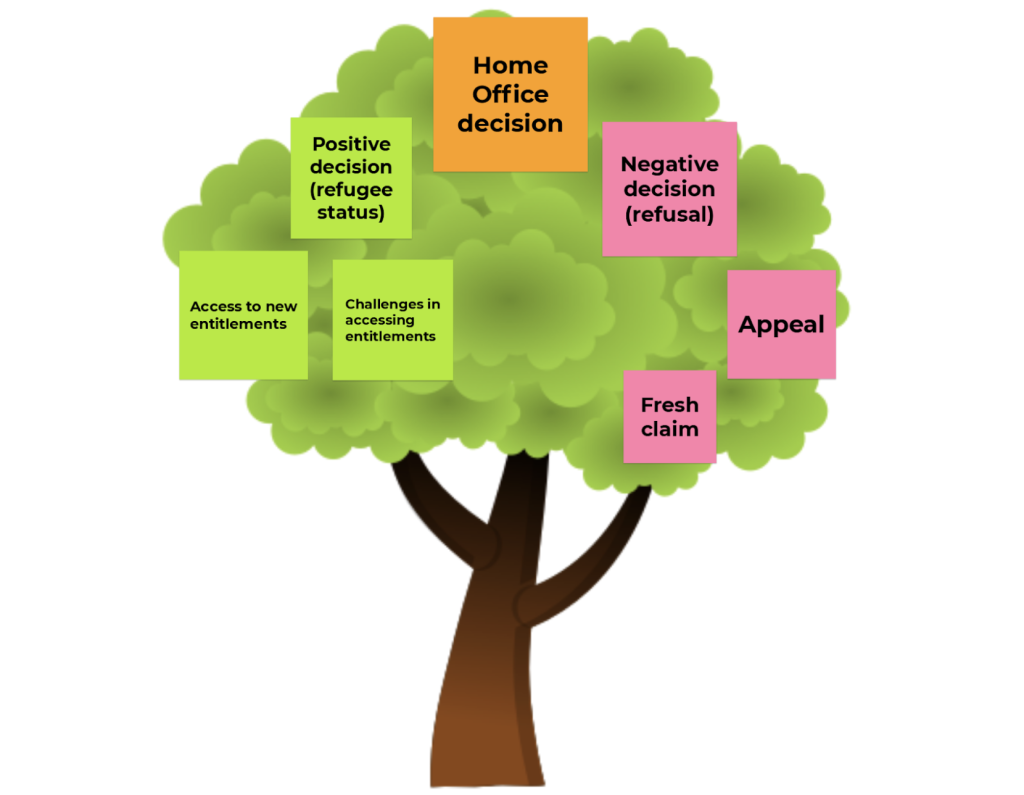
On Monday 21 October, Esther and Yumna travelled down to Folkestone to facilitate a Solidarity Session for residents of Napier Barracks and their allies. The session was hosted in collaboration with Napier Friends.
Napier Barracks is deemed as ‘temporary accommodation’ by the Home Office for men seeking asylum. In reality, it is an isolated, quasi-detention centre, surrounded by an eight foot high fence and watched over by 24 hour security.
Napier Friends is a grassroots organisation supporting those temporarily living at Napier Barracks. Their mission is to help people seeking asylum to settle into the local community and their new lives in the UK. They provide a support network to people living at Napier, as well as those who have moved on from Napier, and offer meaningful activities that help people seeking asylum to adapt and integrate. This includes learning English and learning about life in Britain, and improving the residents’ health and wellbeing through cooking classes, sports, and opportunities to volunteer in the local community.
What happened at the Session?
The purpose of this Solidarity Session was to explore what happens after a Home Office decision on an asylum claim (both positive and negative outcomes), and to have a discussion about what community means to (current and former) residents of Napier, and how they – together with allies – can build upon that meaning.
We began the session as we always do, by introducing the work of Right to Remain and how to use the Toolkit.
We then moved into a discussion and activities about receiving a Home Office decision in an asylum claim. Often, it can feel like there is a binary where a Home Office grant of refugee status is a fantastic happy ending, and a Home Office refusal of an asylum claim is a cause for hopelessness and signifies the end of the road. In reality, receiving a grant of refugee status can be an extremely difficult adjustment. And, a first instance refusal of an asylum claim is most definitely not the end of the road.
Through a series of interactive activities and quizzes, we sought to untangle these myths and to outline the actions that people in the system can take, regardless of whether they have a lawyer.
What does community mean to you?
In a session moderated by Napier Friends, participants were asked to consider the following questions in groups:
- What does ‘community’ mean to you?
- In what ways do you (already) feel community at Napier?
- In what ways would you like to engage in community at Napier?
Some really meaningful and hopeful points were made as a result of these discussions. For example, it was acknowledged that the situation at Napier Barracks is difficult. However, it was also acknowledged that, through initiatives like those cultivated by Napier Friends, there is a lovely community at Napier, too. People are mutually supportive and the residents have formed friendships and learned from one another.
Many brilliant suggestions were made for how to increase the sense of community at Napier. For example:
- Visits to care homes and hospitals, to provide solidarity and mutual support in the community as opposed to a charity (not solidarity) model
- Writing letters to and visiting people in prison (particularly those who do not speak English)
- Community cafe and cooking initiatives that bring together residents of Napier with the surrounding community
We thoroughly enjoyed our time in Folkestone and are so grateful to Napier Friends and to all the residents. It is always such a pleasure to share a room with and to learn from such engaged participants.













Discussion: